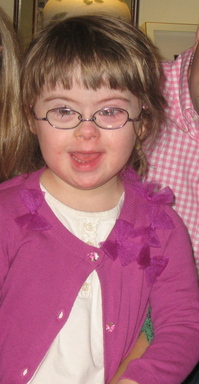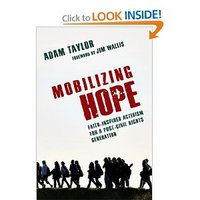It is a struggle for me to know how to describe our 5-year
old daughter Penny, who has Down syndrome. On the one hand, I want to tell skeptical
strangers that she’s smart, and I
want to back up that loaded word with proof of her accomplishments. I want to
describe how she asks, “Mom, can we do some homework?” and then proceeds to
sound out words or work on naming opposites or analogies. I want to take a
picture of her working on a jigsaw puzzle. Or videotape one morning when her
younger brother William asks her to read him a book. Or record our car rides to
school when she makes up a song to entertain us all.
There’s a part of me that wants to shout her achievements
from the proverbial rooftops, to declare that children with Down syndrome have
more potential to learn than any doctor or teacher or therapist ever thought
possible. And yet I worry that proclaiming Penny’s abilities is merely to abide
by a cultural standard that measures human value based upon accomplishments and
aptitude instead of intrinsic worth.
Plenty of children with Down syndrome who grow up in equally loving, equally stimulating, equally supportive environments are not doing the things that Penny is doing. And their lives are no less valuable than hers.
So sometimes I feel stuck. I want other parents, and, perhaps more so, doctors and teachers and the general public, to know that the limitations they assume for a child with Down syndrome just might be wrong. But I don’t want to imply that the reason to welcome children and adults with Down syndrome and other disabilities is because of their “potential.” I don’t want to imply that Penny’s life is more significant than the child who cannot speak, or the adult who wears diapers, or the teenager who has not yet learned to read.
So how do I describe her in such a way that affirms her abilities without basing her value as a human being upon those abilities? At the end of the day, what I want for Penny is the same as what I want for William, and for any other child.
I don’t want her worth to be measured based upon what she can do. For instance, I don’t want her to be the best ballerina in her ballet class or the most proficient reader in her school. But I do want her to find activities she enjoys and work hard so she can enjoy them even more. I don’t want her life to be evaluated in such a way that it takes from others (i.e. she’s better than so-and-so, and therefore she’s a more significant human being). I want her life to be a life that gives.
I don’t want her to succeed. Rather, I want her to flourish.


